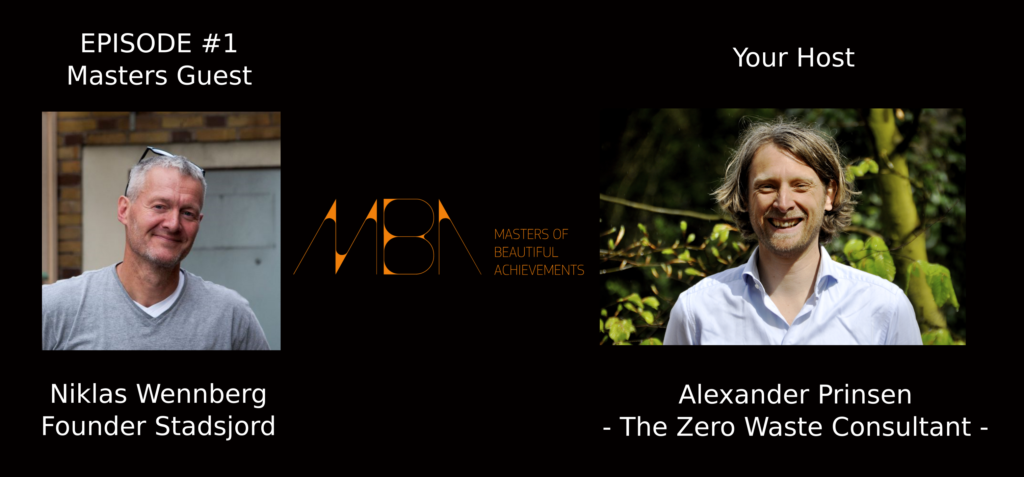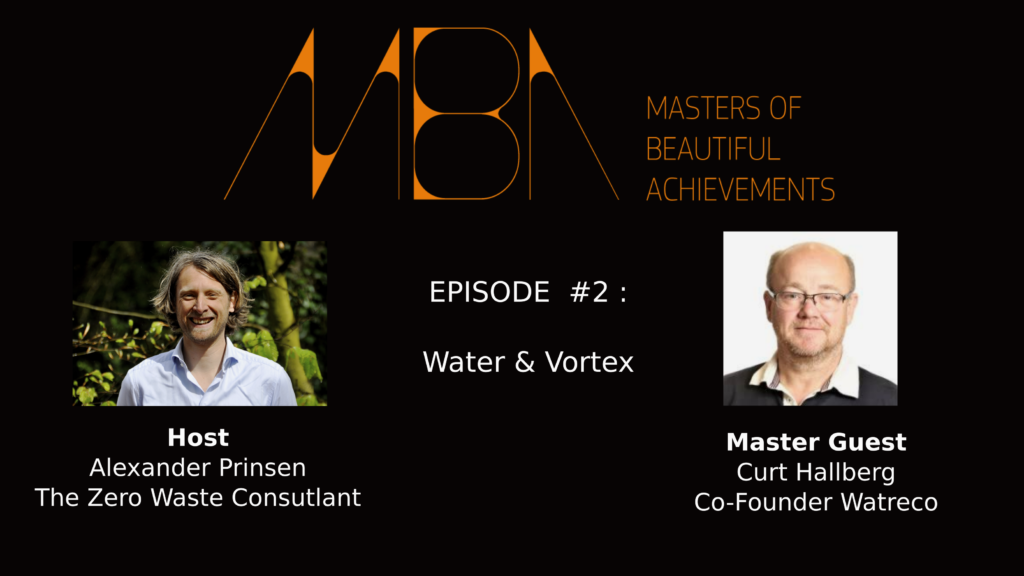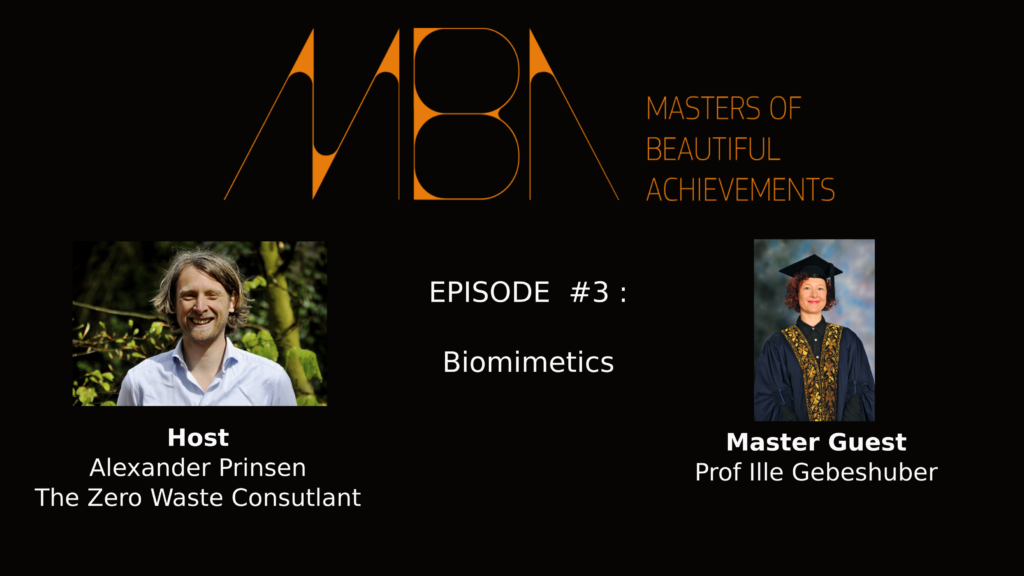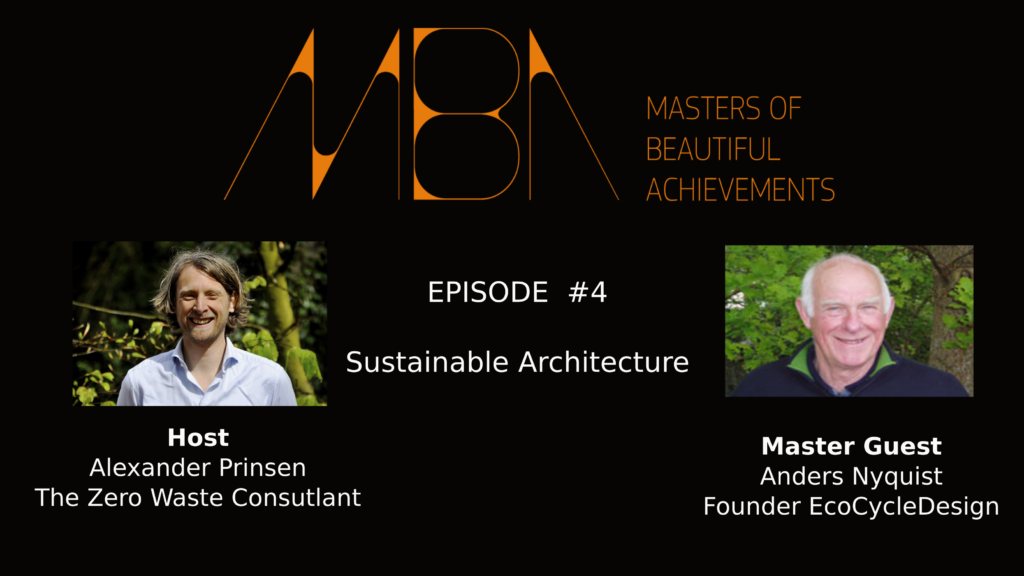With ‘environmental capitalist’ Jason Drew we explored his journey on how he as an investor and entrepreneur is seeking out business opportunities that do good for the (eco)logy and business. For Jason it is just the smart thing to do as it turns out nature is so smart. From a business perspective if you operate a natural organic business that is in-tune with nature it is robuust and resilient. There is nothing smarter than nature, so you nailed down how nature would do it and nobody will be able to outcompete you.
Did you find this conversation interesting? Become a paid subscriber in support of the podcast. Thank you in advance.
Making podcasts requires hours preparing and editing, and it is always nice to receive an acknowledgement that you have liked what I do.  – Become a paid member of my Gumroad community
– Become a paid member of my Gumroad community

I thank you for your support and enjoy the conversation![]()
![]()
![]()
![]()
![]()
![]()
![]()
![]()
In retrospect Jason argues, “we humans have lost so much (ancient) knowledge about how nature operates and how it can benefit us. It is the understanding of the natural cycles of matter that is providing so much opportunities to close loops and restore the imbalances we have created. The industrial revolution has created a lineair education system, which lies at the root of many of our system problems. We need to get out and stay out, we are living large part of our lives inside buildings so we are losing our connection to nature. We need to take more time to be outside and be amazed how nature does things.”
Jason calls it “sustainable retreat”, as we need to do more with less. The challenge is to create a business that fundamentally repairs the environment and leave everything better behind, not just damage it less. The more the business grows, the more impact and the better it is for everybody. To undo what is broken, one needs to be an environmentalist to understand how to restore it. And with capital one can decide where to invest in. So the business needs have a sound cashflow and profit margin to actually make it happen and when the business does more good, the better the return become. As such his needs to work on both sides, because the business and ecology needs to sustain themselves. The biggest opportunities lie not in apps or platforms, it lies in better understanding how nature operates and to integrate it in our daily lives.
As for the (innovative) mindset, he as an optimists always need to justify himself as to why he does what he does. It requires you listen more than speaking, asking a lot of questions until he understands it. And using the natural logic one must be convinced it must be possible. The rest is just doing and make it work.
Over the years Jason has seen the potential of what nature has to offer, here are some of his insights.
- Agriprotein – Black Solder Fly farming
Once you understand the flies are the cleaners of nature converting manure and slaughterhouse waste (dead meat) into protein (the maggot and fly) to become feedstock for other animals, like fish. So flies have an important role to play in the (eco)logy of nature. And yet commercial fish farming relies on feeding the carnivore species (salmon and trout) we farm with fish from the oceans, driving the natural fish species to extinction. (Like we do with feeding our cows with plant protein, driving global deforestation). Yet these carnivore species are built to catch insects as their natural source of protein and not eating other fish.
This was the start of a entrepreneurial journey which required groundbreaking new research on what it takes to scale up fly farming production.
-> Chickens who eat larvae from dung (cow manure), turned to have very strong immune systems, thanks to the antimicrobial peptides the larvae emit to be able to consume the manure (and reduce the bacterial infestation as its competitor). This turns out the be one of the reasons why birds have such a good immune system.
-> Sailors in the old days would eat maggot invested biscuits during the long sea travels and they would be much better immune system than those living on the land.
-> Fruit fly was the first animal species in space, due its short lifecycle.
-> Pheromones are powerful communication molecules insect use. - Oak extracts
Historically civilizations used oak trees to create barrels to store water and other liquids. It turns out oak has anti-oxidant properties which helps to keep drinking water fresh. This is also why oak trees last for over thousands of years. It are specifically the oaks from north of France, some in Germany and east United States growing on silica rich soils, which is providing the anti-oxidant properties. It is a great replacement for the Sulphur in whine. - Cannabis & mushroom extracts (to substitute the chemical molecules)
The natural properties of these extracts are not additive and are excellent painkiller and help cure neurological disorders. - Manufacturing of natural substances, like specific plant cells
It is now possible to produce natural plantlike molecular structures on a large scale which is outcompeting the chemical variants. With only a few cells extracted from the plant, you can replicate these plant cells, using the ingredients photosynthesis provides, in the volume you want. The benefit of this technology is that it does not provide a biowaste stream from the extraction, once directly has the desired molecular structure. This challenges the biorefinery concept where all of the plant is processed to make it cost effective. - Sheep’s are selectively bred to produce 2 lams, to ensure at least 1 survives.
- Mosquitoes
-> Males live outside and female inside
-> Males are pollinators and female seek out animal protein
-> It turns out mosquitoes have an important ecological function (purpose) as feedstock for animals (fish, birds and reptiles) and any solutions involving stopping the hatching of new mosquitoes will create a local ecosystem breakdown. Rats populations will go out of control, swallows will depart..
-> Mosquitoes lay eggs in water, which in return are eaten by fish hatchlings. On the surface boatmen eat the mosquito hatchlings and the boatmen are eaten by the swallows.
-> Rats are controlled by mosquitos (they get infected from diseases from the mosquito) as rats just like humans pass on diseases between themselves.
-> Mosquitoes never move more than 100 meters in their lifetime and lay their eggs in the same pebble they were born. - Earth vs Soil
We live on a very thin layer soil we strangely call earth, as also we call our planet Earth. Soil is the living layer as the rest of the layers underneath consists of rock, except for the pockets containing gas and oil. The UN has predicted we only have sufficient topsoil left for 18 years of planting seasons before all is washed away into our oceans, never to be recovered. Making soil is hard and takes many years, and yet we willing accept losing our topsoil to our seas at an unpresented speed. - Human excrements as business
Human urine used to be very valuable for the tanning of leather, and yet we discharge it into the oceans where it is of no use as fertilizer. In Kenya a toilet system was created by an entrepreneur separated the urine and faeces and takes these out of the slums to be processed outside the cities. The faeces would be decomposed using black solder flies. The urine (contains 15% nitrogen, some potassium and phosphate) would be put in UBC containers for transport to local farms as a great NPK fertilizer.
-> Note, nitrogen is a great decomposer (useful as cleaner and disinfected agent) for most things, the nitrogen breaks down any genetic matter that is present. - Swarm vs AI (Swarm Technology as commodity trading)
Swam systems are based on the how ants operate as a whole, where the individual only can operate with the colony. It turns it these kind of swarm systems are able to outcompete AI in many ways. Not to mention the bias of its creators that is inherent in machine learning.
Did you find this conversation interesting? Become a paid subscriber in support of the podcast. Thank you in advance.
Making podcasts requires hours preparing and editing, and it is always nice to receive an acknowledgement that you have liked what I do.  – Become a paid member of my Gumroad community
– Become a paid member of my Gumroad community
The Masters of Beautiful Achievements podcast series is where Alexander Prinsen explores natural science, innovation, systems thinking and leadership. As systemic innovation consul at scopematters.com he helps organizations accelerate to save costs, do good and operate within the planetary boundaries.



